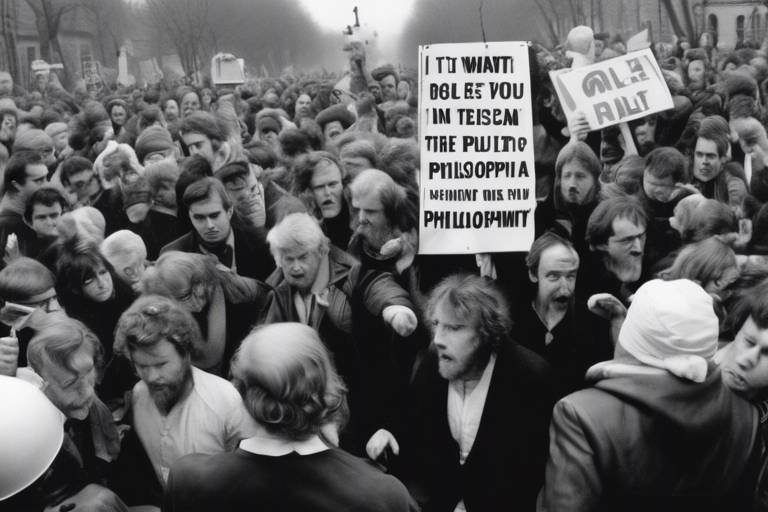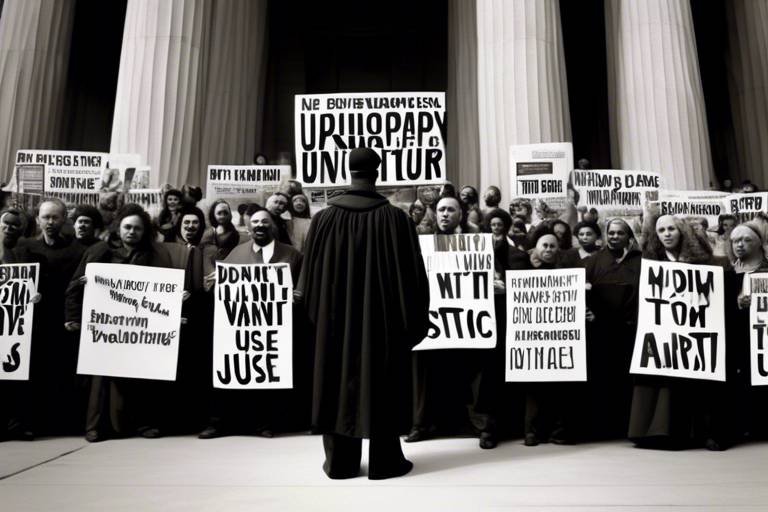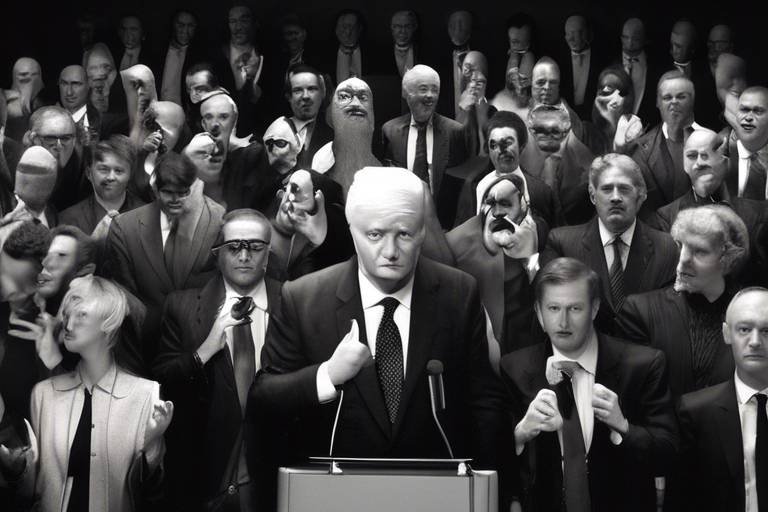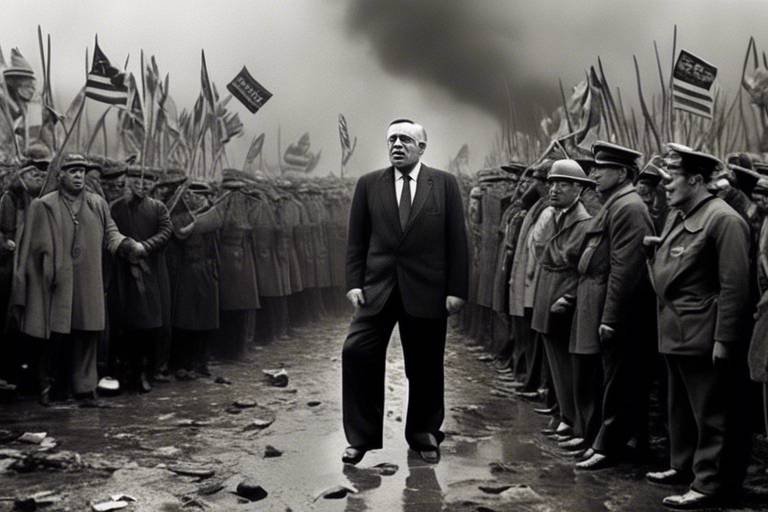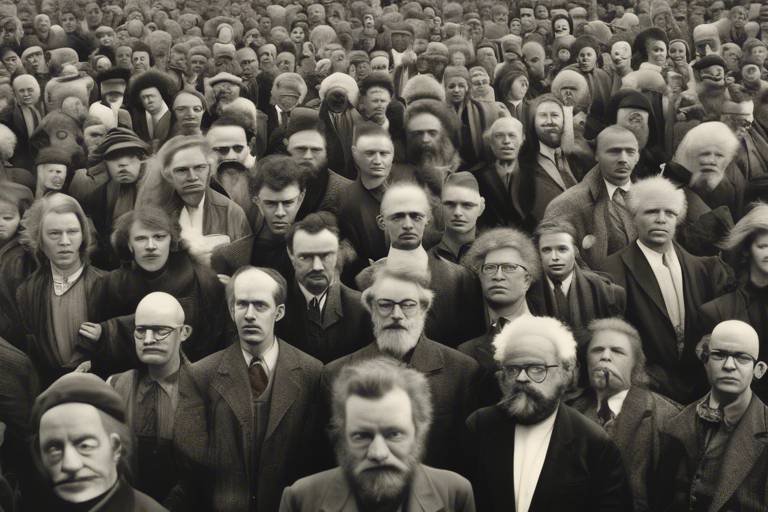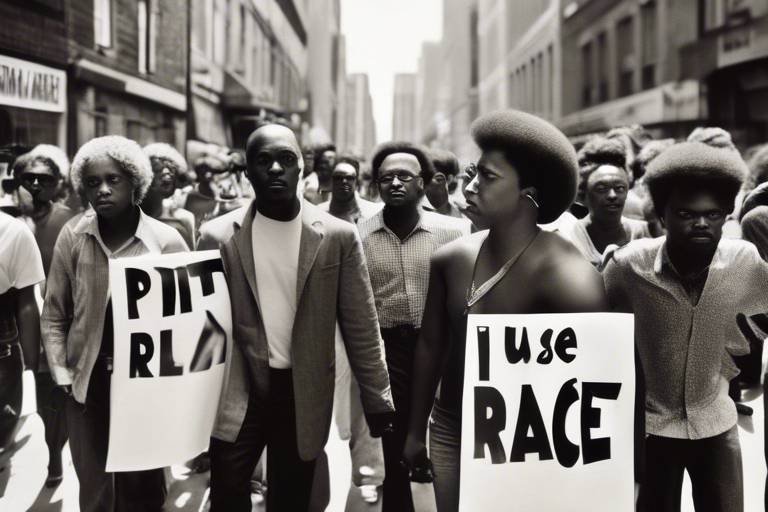The Role of Philosophy in Modern Political Movements
In today's fast-paced world, the intersection of philosophy and politics is more relevant than ever. The philosophical ideas that have emerged over centuries continue to shape contemporary political movements, influencing the ideologies, strategies, and societal changes we witness today. But how exactly do these abstract concepts translate into real-world actions and policies? This article will delve into the profound impact of philosophy on modern political landscapes, exploring key concepts and influential figures that have paved the way for movements advocating for justice, equality, and freedom.
At the heart of many political movements lies a philosophical foundation that serves as both a guide and a motivator. Think about it: when activists rally for change, they often invoke ideas rooted in the works of great thinkers who have come before them. These ideas not only provide a framework for understanding societal issues but also inspire individuals to take action. For instance, the principles of liberalism, which champion individual rights and freedoms, have fueled movements that seek to expand civil liberties and promote democratic governance. On the other hand, socialism advocates for collective ownership and social welfare, inspiring a different kind of activism aimed at reducing economic inequality.
Moreover, the dynamic nature of political philosophy allows it to evolve alongside societal changes. As new challenges arise—be it climate change, economic disparity, or social injustice—philosophical ideas are reinterpreted and adapted to address these pressing issues. This adaptability is crucial; it ensures that political movements remain relevant and responsive to the needs of the people they represent. For example, the resurgence of democratic socialism in recent years demonstrates how traditional socialist ideas have been reimagined to fit within modern democratic frameworks, highlighting the ongoing dialogue between philosophy and politics.
In essence, the role of philosophy in modern political movements is not just about theory; it's about action and advocacy. Philosophical frameworks provide activists with the tools to articulate their goals, justify their protests, and engage with the public effectively. Whether through ethical considerations that guide their actions or strategic frameworks that shape their messaging, philosophy remains a driving force behind many movements today.
As we continue to explore the intricate relationship between philosophy and politics, it becomes clear that the ideas we hold dear can spark change and inspire generations. From the thinkers of the past to the activists of today, the dialogue between philosophy and political action is a testament to the enduring power of ideas in shaping our world.
- How does philosophy influence political movements?
Philosophy provides the foundational ideas that shape the goals and strategies of political movements, guiding activists in their pursuit of change. - What are some key philosophical movements that impact politics today?
Key movements include liberalism, socialism, feminism, and environmentalism, each offering unique perspectives on justice, rights, and governance. - Can philosophy adapt to modern challenges?
Absolutely! Philosophy is dynamic and continually evolves to address contemporary issues, ensuring its relevance in current political discourse. - Why is understanding political philosophy important?
Understanding political philosophy helps individuals critically engage with political issues, fostering informed activism and participation in democratic processes.

Historical Foundations of Political Philosophy
The roots of political philosophy stretch back to ancient civilizations, where the seeds of thought were sown by great thinkers who sought to understand the nature of justice, power, and governance. These early philosophers, such as Plato and Aristotle, laid the groundwork for modern political ideologies, influencing how we perceive authority and the rights of individuals within a society. Plato, for instance, envisioned a utopian society governed by philosopher-kings, while Aristotle emphasized the importance of virtue and the common good. Their ideas continue to resonate today, shaping contemporary political movements and discussions.
As we delve deeper into history, we find that the Enlightenment period marked a significant turning point in political thought. Thinkers like John Locke and Thomas Hobbes introduced concepts of social contracts and individual rights, arguing that governments derive their authority from the consent of the governed. Locke’s belief in natural rights laid the foundation for liberal democracy, inspiring revolutionary movements across the globe. Hobbes, on the other hand, presented a more cynical view of human nature, advocating for a strong central authority to maintain order. This philosophical dichotomy between individual liberty and state control continues to influence modern political debates.
Moreover, the impact of the French Revolution and the writings of Jean-Jacques Rousseau cannot be overlooked. Rousseau's idea of the "general will" challenged traditional notions of governance and inspired movements advocating for equality and collective decision-making. His assertion that "Man is born free, and everywhere he is in chains" resonates with contemporary struggles against oppression and inequality. The historical context of these philosophical developments reveals a rich tapestry of ideas that have shaped the political landscape we navigate today.
To better understand the evolution of political philosophy, it's essential to recognize the key concepts that emerged during these foundational periods. Below is a table summarizing some of the influential philosophers and their contributions:
| Philosopher | Key Ideas | Impact on Political Thought |
|---|---|---|
| Plato | Philosopher-kings, ideal state | Influenced notions of governance and justice |
| Aristotle | Virtue ethics, common good | Foundation for civic responsibility and ethics in politics |
| John Locke | Natural rights, social contract | Inspired liberal democracy and human rights movements |
| Thomas Hobbes | Strong central authority, human nature | Influenced views on state power and security |
| Jean-Jacques Rousseau | General will, social equality | Inspired democratic movements and ideas of collective governance |
In summary, the historical foundations of political philosophy provide a crucial context for understanding contemporary political movements. The ideas of ancient and Enlightenment thinkers continue to echo through time, influencing how we approach issues of justice, governance, and individual rights today. As we explore the philosophical influences on modern movements, it becomes clear that these foundational concepts remain relevant, guiding activists and leaders in their quest for societal change.
- What is political philosophy? Political philosophy is the study of fundamental questions about government, justice, rights, and the role of individuals in society.
- Who are some key figures in political philosophy? Important figures include Plato, Aristotle, John Locke, Thomas Hobbes, and Jean-Jacques Rousseau.
- How does political philosophy influence modern movements? Political philosophy provides the theoretical framework for contemporary movements, informing their ideologies, strategies, and goals.
- Why is understanding historical foundations important? Understanding historical foundations helps contextualize current political debates and the evolution of ideas over time.

Key Philosophical Influences on Modern Movements
In the complex tapestry of modern political movements, philosophical ideas serve as the threads that weave together various ideologies and strategies. These ideas don’t just sit in dusty old books; they pulse with life, shaping the very fabric of our society today. From the fervent calls for social justice to the passionate advocacy for individual rights, the impact of philosophy is profound and far-reaching. Let's dive into some pivotal philosophical influences that have fueled contemporary movements, illuminating how they resonate with the struggles of our time.
One of the most significant influences is liberalism, which champions individual freedom and the protection of personal rights. This philosophy has inspired countless movements advocating for civil liberties, equality, and the right to self-determination. Think about the civil rights movements across the globe; at their core, they echo the liberal tenet that every individual deserves to be treated with dignity and respect, regardless of their background. The ideas of thinkers like John Locke and John Stuart Mill have laid the groundwork for these movements, emphasizing the importance of personal autonomy and government accountability.
On the other hand, socialism offers a counterpoint, advocating for collective ownership and the idea that society should work together to ensure the welfare of all its members. This philosophy has sparked movements aimed at addressing the glaring economic inequalities that plague our world today. For instance, the rise of democratic socialism in various countries reflects a renewed commitment to integrating social justice within democratic frameworks. It's not just about redistributing wealth; it's about creating systems that empower everyone, ensuring that the voices of the marginalized are heard and valued.
Furthermore, the feminist movement has drawn heavily from philosophical ideas about gender equality and social justice. Feminist philosophers like Simone de Beauvoir and Judith Butler challenge traditional notions of gender roles and advocate for a society where everyone, regardless of gender, can thrive. Their work has inspired movements that seek to dismantle patriarchal structures, advocating for policies that promote gender equity in all spheres of life, from the workplace to the home. This philosophical underpinning is crucial in understanding why these movements are not just about women's rights but about redefining societal norms for everyone.
Additionally, the rise of environmental movements has been influenced by philosophical ideas surrounding our relationship with nature. Thinkers like Aldo Leopold and Arne Naess have emphasized the ethical responsibility we have toward the environment, framing ecological awareness as a moral imperative. As climate change becomes an ever-pressing issue, these philosophical ideas resonate deeply, motivating activists to advocate not only for policy changes but also for a fundamental shift in how we perceive our role within the natural world.
To summarize, the interplay between philosophy and modern political movements is a dynamic one, characterized by a rich dialogue between ideas and action. The philosophies of liberalism, socialism, feminism, and environmentalism continue to inspire and challenge us, pushing for a more just and equitable society. Understanding these influences helps us appreciate the depth and complexity of the movements that shape our world today.
As we reflect on these philosophical foundations, it’s essential to consider how they will continue to evolve and inspire future generations. The quest for justice, equality, and sustainability is far from over, and the philosophical ideas that underpin these movements will undoubtedly play a crucial role in shaping the political landscape of tomorrow.
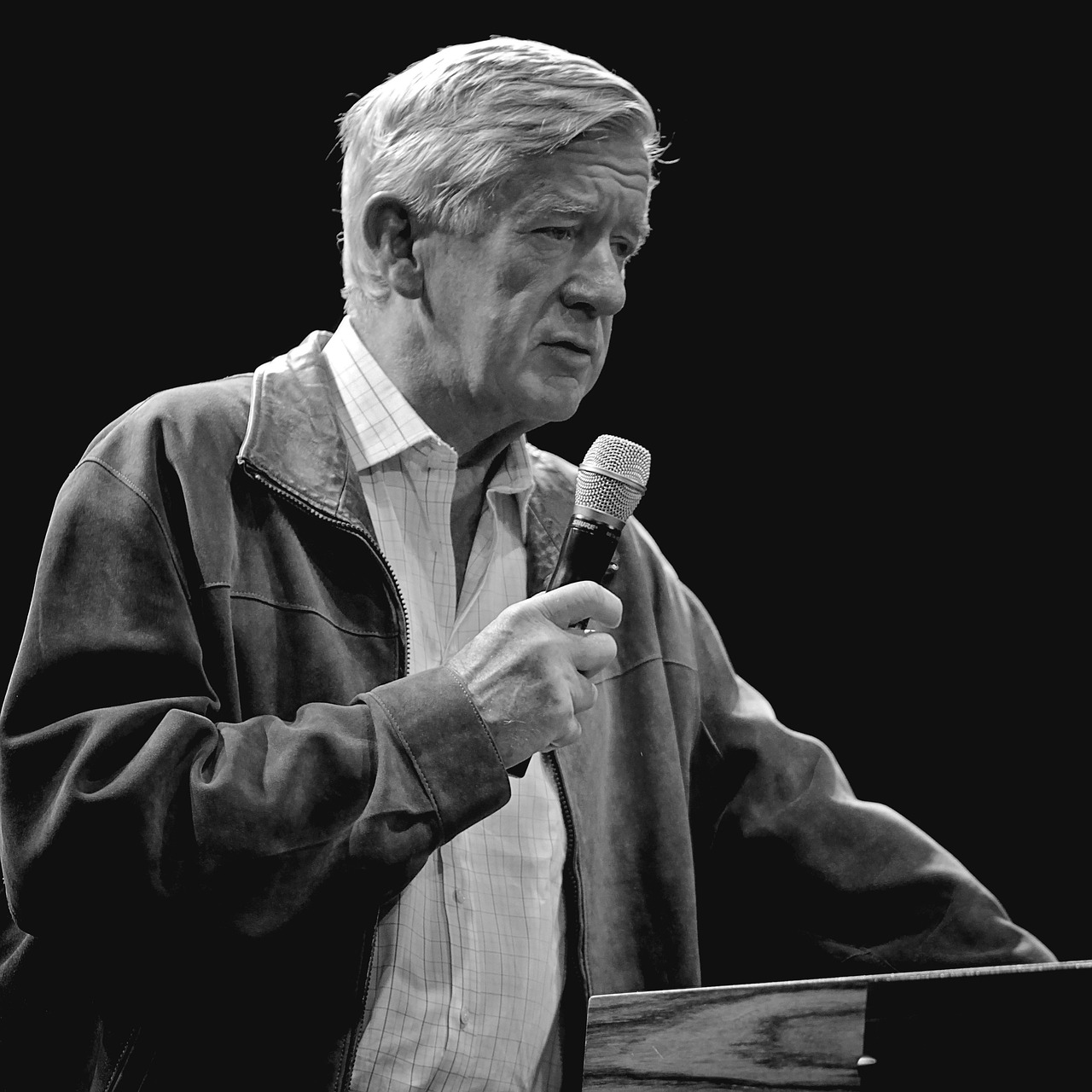
Libertarianism and Individual Freedom
Libertarianism is often seen as a beacon of individual freedom, advocating for a political system where the rights of the individual are paramount. This philosophy posits that the government should play a minimal role in the lives of its citizens, allowing people to make their own choices without undue interference. Imagine a vast open field where everyone can roam freely, making their own paths; this is the essence of libertarian thought. It challenges the notion that the state knows best, arguing instead that individuals are the best judges of their own interests.
At the heart of libertarianism lies the belief in personal autonomy. This means that each person has the right to govern themselves, pursue their own happiness, and make decisions about their own lives. For instance, consider the debate over personal choices such as drug use or marriage. Libertarians argue that these decisions should be left to individuals rather than dictated by laws or societal norms. This perspective not only champions freedom but also encourages personal responsibility, as individuals must face the consequences of their choices.
Key libertarian thinkers have profoundly influenced modern political discourse. Figures like John Stuart Mill and Friedrich Hayek have laid the groundwork for understanding the importance of free markets and personal liberties. Mill, in his seminal work On Liberty, emphasized the significance of freedom of expression and the need for society to protect individual rights against the tyranny of the majority. Hayek, on the other hand, argued that economic freedom is essential for individual freedom, warning against the dangers of government intervention in the market. Their ideas continue to resonate today, inspiring movements that advocate for less government control.
The impact of libertarianism on contemporary politics is profound. In recent years, we have seen a surge in movements that prioritize civil liberties and advocate for reduced governmental oversight. These movements often focus on issues such as:
- Reducing taxes and government spending
- Promoting free-market policies
- Defending privacy rights and personal freedoms
As we navigate through an increasingly complex political landscape, the principles of libertarianism serve as a reminder of the importance of individual rights. They challenge us to consider how much control we are willing to cede to the government and how that affects our freedoms. In an era where many feel that their liberties are under threat, libertarianism encourages a re-examination of the balance between state power and personal freedom. Ultimately, it asks us to envision a society where individuals can thrive, free from the constraints of an overreaching government.

Key Thinkers in Libertarian Thought
When we dive into the world of libertarianism, we encounter a rich tapestry of ideas woven by some truly influential thinkers. These individuals have not only shaped the philosophy itself but have also laid the groundwork for various movements advocating for personal freedom and limited government. One of the most prominent figures in this realm is John Stuart Mill, a 19th-century philosopher whose works championed individual liberty and the importance of personal choice. Mill famously argued that the only purpose for which power can be rightly exercised over any member of a civilized community, against his will, is to prevent harm to others. This notion has resonated through the ages, influencing countless advocates for civil liberties.
Another key figure is Friedrich Hayek, an economist and political philosopher whose ideas about free markets and spontaneous order have become cornerstones of modern libertarian thought. Hayek's seminal work, The Road to Serfdom, warns against the dangers of government control and advocates for a society where individuals can freely engage in economic activities without state interference. His belief that economic freedom is intrinsically linked to political freedom has inspired many contemporary libertarians to push back against governmental overreach.
These thinkers have provided a robust intellectual foundation for libertarian movements worldwide. Their ideas are not merely academic; they are deeply embedded in the strategies and goals of various political groups advocating for minimal state intervention. For instance, the Libertarian Party in the United States draws heavily from Mill and Hayek's philosophies, promoting policies that emphasize individual rights, free markets, and a non-interventionist foreign policy.
Moreover, the influence of libertarian thought can be seen in various social movements that prioritize personal autonomy and freedom of choice. Whether it’s advocating for drug decriminalization, privacy rights in the digital age, or opposing surveillance states, the legacy of these key thinkers continues to inspire activists and policymakers alike.
In summary, the contributions of John Stuart Mill and Friedrich Hayek to libertarian thought have been profound and far-reaching. Their ideas not only challenge the status quo but also empower individuals to fight for their rights and freedoms. As we navigate the complexities of modern governance, their philosophies remain a guiding light for those who seek to uphold the principles of liberty and personal responsibility.
- What is libertarianism? Libertarianism is a political philosophy that emphasizes individual freedom, limited government, and free markets.
- Who are the key thinkers in libertarian thought? Key thinkers include John Stuart Mill and Friedrich Hayek, who have significantly influenced the principles of personal freedom and economic liberty.
- How do libertarian ideas impact modern political movements? Libertarian ideas promote policies that reduce government intervention in personal lives and advocate for civil liberties, influencing various contemporary movements.

Impact on Contemporary Politics
The influence of libertarian principles on contemporary politics is profound and multifaceted. In a world where governmental overreach and bureaucratic inefficiencies are hotly debated, libertarianism provides a refreshing perspective that champions individual freedom and personal responsibility. This philosophy has catalyzed various political movements that advocate for a reduction in state intervention across multiple sectors, including healthcare, education, and personal finance. By emphasizing the importance of free-market policies, libertarians argue that a less intrusive government fosters innovation, economic growth, and ultimately, a higher quality of life for individuals.
One notable impact of libertarian thought is the rise of movements aimed at civil liberties. In recent years, we have witnessed a surge in activism focused on issues such as privacy rights, drug legalization, and criminal justice reform. These movements often draw upon libertarian arguments to challenge existing laws and regulations that are perceived as oppressive or outdated. For example, the push for marijuana legalization has gained traction, with advocates arguing that individuals should have the right to make personal choices regarding their own bodies without government interference.
Additionally, the libertarian emphasis on economic freedom has influenced contemporary debates around taxation and government spending. Proponents argue that lower taxes and reduced government spending can lead to a more prosperous society, as individuals retain more of their earnings to invest in their own futures. This perspective has gained popularity in various political circles, leading to policies that prioritize fiscal responsibility and economic autonomy.
However, the impact of libertarianism on contemporary politics is not without its challenges. Critics often argue that a strict adherence to libertarian principles can lead to a neglect of social welfare programs that are essential for addressing issues such as poverty and inequality. The debate continues: can a society truly thrive when individual freedoms are prioritized over collective responsibility? This question remains at the heart of many political discussions today.
In summary, the impact of libertarian ideas on contemporary politics is significant and continues to shape the landscape of political discourse. With movements advocating for personal freedoms and minimal government intervention, the principles of libertarianism resonate with many who seek to challenge the status quo. As we move forward, the ongoing dialogue between libertarian ideals and societal needs will undoubtedly influence future political developments.
- What are the core principles of libertarianism?
Libertarianism emphasizes individual liberty, free markets, and limited government intervention in personal and economic matters. - How has libertarianism influenced modern political movements?
Libertarianism has inspired movements focused on civil liberties, economic freedom, and reducing governmental control, impacting debates on issues like privacy rights and taxation. - Are there criticisms of libertarian principles?
Yes, critics argue that a strict focus on individual freedoms can overlook the need for social welfare programs and collective responsibility to address societal issues.

Socialism and Collective Action
Socialism, at its core, champions the idea of collective ownership and prioritizes the welfare of the community over individual profits. This philosophy arises from the belief that the resources of a society should be shared equitably among its members, ensuring that no one is left behind. Think of it as a large communal garden where everyone contributes and benefits equally, rather than a few individuals hoarding all the fruits while others watch from the sidelines.
This ideology has inspired numerous movements throughout history, aiming to address the glaring economic inequalities that have persisted in capitalist societies. The essence of socialism lies in its call for collective action—people coming together to advocate for change, whether it’s through protests, community organizing, or political engagement. The power of collective action is akin to a symphony; when individuals unite their voices, they create a harmonious call for justice that resonates far and wide.
One of the most significant aspects of socialism is its focus on social justice. Movements inspired by socialist principles often seek to tackle issues such as poverty, worker's rights, and access to healthcare. These movements argue that when individuals stand together, they can challenge the structures of power that perpetuate inequality. For example, labor unions, which originated from socialist ideas, have played a crucial role in advocating for fair wages and safe working conditions. By pooling their resources and efforts, workers have historically been able to negotiate better terms and conditions, showcasing the strength of collective action.
Moreover, contemporary socialist movements have evolved to address modern challenges. Issues like climate change, systemic racism, and gender inequality are now frequently intertwined with socialist advocacy. Activists argue that only through collective action can society effectively tackle these multifaceted problems. For instance, the intersection of environmental justice and socialism is particularly poignant; many argue that the fight against climate change must include voices from marginalized communities who are disproportionately affected by environmental degradation.
In recent years, we have seen a resurgence of interest in socialist ideas, particularly among younger generations who are disillusioned with traditional political structures. Movements such as democratic socialism have gained traction, advocating for policies that promote social welfare within democratic frameworks. This modern twist on socialism emphasizes the importance of maintaining democratic processes while pushing for significant social reforms. It illustrates how the principles of collective action can be adapted to fit contemporary contexts, ensuring that the fight for equality and justice remains relevant.
In summary, socialism and collective action are inextricably linked. The philosophy not only provides a framework for understanding economic and social justice but also inspires individuals to unite for a common cause. As we navigate the complexities of modern society, the call for collective action remains a powerful tool for change, reminding us that together, we can create a more equitable world.
- What is socialism? Socialism is an economic and political system that advocates for collective ownership of the means of production and seeks to promote social welfare and equality.
- How does collective action relate to socialism? Collective action is a fundamental principle of socialism, emphasizing that individuals can achieve significant change when they unite for a common goal.
- What are some modern examples of socialist movements? Recent examples include democratic socialism, which seeks to integrate social justice within democratic frameworks, and various labor movements advocating for workers' rights.
- Why is collective action important? Collective action empowers individuals to challenge existing power structures, advocate for social justice, and address systemic inequalities effectively.

Historical Context of Socialist Movements
The historical context of socialist movements is a rich tapestry woven from the threads of economic hardship, class struggle, and the quest for social justice. Emerging in the 19th century, socialism arose as a response to the **excesses of capitalism** during the Industrial Revolution. Workers faced grueling conditions, long hours, and meager wages, leading to a growing discontent that would fuel the flames of revolutionary thought. It was during this tumultuous period that thinkers like Karl Marx and Friedrich Engels articulated the principles of socialism, emphasizing the need for collective ownership and the redistribution of wealth as necessary remedies for societal inequality.
As socialist ideologies began to take root, various movements sprang up across Europe and beyond, each shaped by local conditions and cultural contexts. For instance, the **Paris Commune of 1871** served as a pivotal moment, showcasing the potential for workers to organize and govern themselves. This uprising, although short-lived, inspired future generations and demonstrated the power of collective action. Additionally, the rise of trade unions and labor parties in the late 19th and early 20th centuries marked significant milestones in the evolution of socialist thought, as workers sought political representation and rights.
Throughout the 20th century, socialism continued to evolve, influenced by global events such as the **Russian Revolution of 1917**, which established the first socialist state. This revolution not only transformed Russia but also sparked a wave of socialist movements worldwide, from Latin America to Asia. The establishment of various socialist regimes, each interpreting Marxist principles through their unique lenses, led to a complex legacy that included both **achievements in social welfare** and significant challenges, including authoritarianism and economic inefficiencies.
In contemporary times, the resurgence of socialist ideas can be attributed to growing concerns over **economic inequality** and the failures of neoliberal policies. Movements like **democratic socialism** have gained traction, advocating for a blend of social ownership and democratic governance. This modern iteration seeks to address the shortcomings of previous socialist experiments while promoting values of equality, environmental sustainability, and social justice. As we navigate the complexities of globalization and climate change, understanding the historical context of socialist movements is crucial for grasping their relevance and potential impact on future political landscapes.
In summary, the historical context of socialist movements is essential to understanding their development and significance in contemporary politics. From the harsh realities of industrial labor to the rise of modern democratic socialism, these movements reflect a continuous struggle for a more equitable society. As we look to the future, the lessons learned from past socialist endeavors will undoubtedly inform new approaches to activism and political change.
- What are the main principles of socialism? Socialism advocates for collective ownership of the means of production, economic planning, and the redistribution of wealth to achieve social equality.
- How did the Industrial Revolution influence socialist movements? The Industrial Revolution highlighted the exploitation of workers, leading to a demand for better working conditions and rights, which in turn fueled socialist ideologies.
- What is the difference between socialism and democratic socialism? While socialism generally seeks to establish a classless society through collective ownership, democratic socialism emphasizes achieving socialist goals through democratic means and political participation.
- Are there successful examples of socialist movements today? Yes, movements like democratic socialism in countries such as Sweden and Norway showcase successful implementations of socialist principles within a democratic framework.

Modern Socialist Movements
In recent years, the landscape of political activism has witnessed a significant resurgence of socialist ideas, particularly through movements that advocate for democratic socialism. This modern interpretation of socialism integrates the principles of social justice within democratic frameworks, aiming to create a more equitable society. But what does this mean in practice? Well, it’s all about balancing the scales of economic and social power, ensuring that the wealth generated in society benefits everyone, not just a privileged few.
One of the most notable examples of modern socialist movements is the rise of figures like Bernie Sanders in the United States and Jeremy Corbyn in the United Kingdom. These leaders have successfully brought discussions about wealth inequality, universal healthcare, and workers' rights to the forefront of political discourse. Their campaigns have ignited a passion for collective action among younger generations, who are increasingly disillusioned with the status quo and eager for change.
These movements often focus on key issues that resonate with the public, such as:
- Economic Inequality: Addressing the widening gap between the rich and the poor is a central tenet of modern socialist movements. Advocates argue for policies that promote wealth redistribution, such as progressive taxation and increased minimum wages.
- Universal Healthcare: Many modern socialists champion the idea that healthcare is a human right, pushing for systems that provide medical care to all citizens, regardless of their financial situation.
- Workers' Rights: Modern socialist movements often emphasize the need for stronger labor protections, advocating for unionization and fair labor practices to ensure that workers receive fair compensation and benefits.
Moreover, the influence of technology and social media cannot be overlooked. These tools have empowered grassroots movements, allowing activists to organize quickly and effectively. Platforms like Twitter and Instagram have become essential for spreading awareness and rallying support for various causes. This has led to a more interconnected global movement, where ideas and strategies can be shared across borders, creating a unified front against economic injustice.
However, the modern socialist movement is not without its challenges. Critics often argue that socialist policies can lead to government overreach and inefficiency. It raises the question: can we find a balance between collective ownership and individual freedoms? This ongoing debate will likely shape the future of socialist movements as they navigate the complexities of modern governance and the diverse needs of society.
As we look to the future, it’s clear that modern socialist movements will continue to play a vital role in political discourse. Their ability to adapt to contemporary issues, coupled with a focus on social justice and equality, ensures that they remain relevant in the ever-evolving landscape of politics. The challenge will be to maintain the momentum of these movements and translate their ideals into actionable policies that can bring about real change.
- What is democratic socialism?
Democratic socialism is a political ideology that advocates for political democracy alongside social ownership of the means of production. It emphasizes the need for a democratic political system combined with a commitment to social justice. - How do modern socialist movements differ from traditional socialism?
Modern socialist movements often focus on democratic processes and reform rather than revolutionary change, aiming to integrate socialist principles within existing democratic frameworks. - What are the main goals of modern socialist movements?
The main goals typically include reducing economic inequality, providing universal healthcare, ensuring workers' rights, and promoting social welfare programs.

Philosophy and Activism
Philosophical ideas often serve as the backbone of activism, providing the intellectual fuel that propels individuals and groups to advocate for change. When we think about activism, we often picture passionate protests, loud chants, and vibrant banners. But beneath the surface, there’s a rich tapestry of philosophical thought that shapes these movements. Why do activists feel compelled to fight for justice? The answer often lies in the ethical frameworks and political philosophies that inspire them to challenge existing power structures.
One of the most compelling aspects of activism is its reliance on ethical considerations. Activists frequently grapple with questions of morality and justice, seeking to align their actions with a broader vision of what is right. For instance, the concept of social justice is deeply rooted in philosophical discourse, drawing from thinkers like John Rawls, who emphasized fairness and equality. This ethical dimension not only motivates individuals but also provides a framework for articulating their goals and demands to the public and policymakers.
Moreover, different philosophical frameworks offer unique strategies for protest. For example, nonviolent resistance, championed by figures like Mahatma Gandhi and Martin Luther King Jr., is grounded in the belief that moral power can triumph over brute force. This approach has inspired countless movements worldwide, demonstrating how philosophical principles can translate into effective activism. In contrast, other philosophies may advocate for more direct confrontation, reflecting the diversity of thought within the activist community.
To illustrate the relationship between philosophy and activism, consider the following table that highlights some key philosophical influences and their corresponding activist movements:
| Philosophical Influence | Key Activist Movements | Core Principles |
|---|---|---|
| Utilitarianism | Animal Rights Movement | Maximizing welfare for all sentient beings |
| Marxism | Labor Movements | Collective ownership and workers' rights |
| Feminism | Women's Rights Movement | Gender equality and social justice |
| Environmental Ethics | Climate Justice Movement | Sustainability and intergenerational equity |
This table exemplifies how philosophical ideas not only inspire activism but also shape the strategies activists use to engage with the public and policymakers. Each of these movements is rooted in profound ethical questions, demonstrating that activism is not merely a reaction to societal issues but a thoughtful engagement with philosophical principles.
In conclusion, the relationship between philosophy and activism is a dynamic one. As political landscapes shift and new challenges arise, the role of philosophical thought in activism will continue to be crucial. It provides the moral compass that guides activists, ensuring that their efforts are not only passionate but also grounded in a deeper understanding of justice and societal change. How can we harness these philosophical insights to create a better future? The answer lies in fostering a culture of critical thinking and ethical reflection, empowering individuals to become effective advocates for change.
- What is the role of philosophy in activism?
Philosophy provides the ethical framework and intellectual foundation that guides activists in their pursuit of justice. - How do philosophical ideas influence modern movements?
Philosophical concepts shape the goals, strategies, and justifications for various activist movements, reflecting the diversity of thought in societal change. - Can activism exist without a philosophical basis?
While activism can be driven by emotions or immediate concerns, a philosophical basis often enriches the movement and provides direction.

Ethics and Political Responsibility
In the realm of politics, the intersection of ethics and responsibility cannot be overstated. Political actors, whether they are elected officials, activists, or ordinary citizens, are constantly faced with choices that have profound implications for society. The question arises: how do ethical considerations shape these decisions? At its core, political responsibility is about recognizing the impact of one's actions on the community and the broader world. It involves a commitment to uphold values such as justice, equity, and integrity.
Philosophers throughout history have grappled with the moral dimensions of political action. Thinkers like John Rawls and Hannah Arendt have emphasized the importance of ethical frameworks in guiding political behavior. For instance, Rawls' concept of the "veil of ignorance" encourages decision-makers to consider policies as if they were unaware of their own social status. This approach fosters a sense of fairness, urging leaders to prioritize the needs of the most vulnerable members of society.
Moreover, the ethical responsibilities of political figures extend beyond mere compliance with laws. They must engage in a continuous dialogue with their constituents, ensuring that their policies reflect the values and needs of the people they serve. This is where activism plays a crucial role. Activists often challenge the status quo, holding leaders accountable and demanding that ethical considerations be at the forefront of political agendas. In this way, ethics becomes a powerful tool for social change.
To illustrate the relationship between ethics and political responsibility, consider the following examples:
| Scenario | Ethical Consideration | Potential Outcome |
|---|---|---|
| Legislating Environmental Policy | Protecting future generations | Long-term sustainability |
| Addressing Income Inequality | Equitable distribution of resources | Improved social cohesion |
| Implementing Healthcare Reforms | Universal access to care | Better public health outcomes |
As society grapples with complex challenges such as climate change, economic disparity, and social injustice, the ethical dimensions of political responsibility become even more pronounced. Activists and politicians alike must navigate these turbulent waters with a clear moral compass. The decisions made today will resonate for generations, making it imperative that ethical considerations guide every action taken in the political arena.
In conclusion, the integration of ethics into political responsibility is not just an abstract concept; it is a practical necessity. As we move forward, it is essential for individuals and groups to engage in ethical reflection, ensuring that their actions contribute to a just and equitable society. After all, in the words of the philosopher Plato, "The greatest penalty for declining to rule is to be ruled by someone inferior to yourself."
- What is the relationship between ethics and politics?
Ethics provides a framework for political responsibility, guiding leaders and activists in making decisions that impact society. - How can activists influence political responsibility?
Activists hold political leaders accountable, advocating for policies that reflect ethical considerations and the needs of the community. - Why is ethical consideration important in legislation?
Ethical considerations ensure that laws promote justice, equity, and the welfare of all citizens, particularly the most vulnerable.

Philosophical Frameworks for Protest
When we think about protests, we often envision passionate crowds, signs held high, and chants echoing through the streets. But beneath this vibrant surface lies a rich tapestry of philosophical frameworks that give these movements their power and direction. These frameworks not only provide the justification for protest but also guide the strategies employed by activists. In essence, they serve as the blueprints for how individuals and groups articulate their grievances and envision their demands for change.
One of the most significant frameworks is utilitarianism, which posits that actions are justified if they promote the greatest happiness for the greatest number. This principle often drives protests aimed at social reforms, as activists argue that their demands will lead to broader societal benefits. For instance, movements advocating for universal healthcare can frame their protests around the idea that access to health services increases overall well-being, thus appealing to utilitarian ethics.
Another influential framework is deontological ethics, which focuses on the morality of actions themselves rather than their consequences. Activists who adopt this perspective often emphasize the importance of rights and justice. For example, protests against systemic racism are often rooted in the belief that every individual has an inherent right to equality and dignity, regardless of the outcomes. This framework can lead to a more principled stance, where the act of protesting is seen as a moral obligation rather than merely a strategic choice.
Furthermore, the philosophy of existentialism plays a crucial role in shaping protest movements. Existentialist thinkers like Jean-Paul Sartre argued that individuals must find their own meaning and purpose in a seemingly indifferent world. This perspective resonates with many activists who feel compelled to act against injustice, as they seek to assert their existence and agency in the face of oppression. Protests inspired by existentialist thought often emphasize personal stories and lived experiences, making them deeply relatable and emotionally charged.
In addition to these frameworks, intersectionality has emerged as a vital concept in contemporary protests. Coined by scholar Kimberlé Crenshaw, intersectionality recognizes that individuals experience overlapping forms of discrimination and privilege. This understanding has led to more inclusive movements that address the complexities of identity and social justice. For example, the Black Lives Matter movement incorporates intersectional perspectives by highlighting how race, gender, and class intersect to shape experiences of oppression. This approach not only broadens the coalition of support but also enriches the dialogue around social issues.
Ultimately, the power of philosophical frameworks in protest lies in their ability to mobilize individuals and communities. They provide the language and rationale for collective action, helping to transform personal grievances into a shared struggle for justice. As various movements continue to evolve, it is essential to recognize how these diverse philosophical ideas contribute to their resilience and effectiveness.
- What is the role of philosophy in protests?
Philosophy provides the ethical and moral frameworks that justify protests and guide activists in articulating their goals and strategies. - How does utilitarianism influence protest movements?
Utilitarianism emphasizes actions that promote the greatest happiness for the greatest number, encouraging protests that advocate for social reforms benefiting society as a whole. - What is intersectionality, and why is it important in modern protests?
Intersectionality acknowledges that individuals face multiple, overlapping forms of discrimination. This concept is crucial for creating inclusive movements that address various social justice issues.

The Future of Philosophy in Politics
As we gaze into the horizon of political landscapes, it becomes increasingly clear that philosophy will continue to play a pivotal role in shaping our future. The dynamic nature of society, characterized by rapid technological advancements and shifting cultural values, demands a philosophical lens to navigate the complexities of modern governance. What does this mean for political movements? It means that ideas will remain the lifeblood of activism and policy-making. Just as past philosophers have influenced movements, future thinkers will forge paths for new ideologies to emerge.
One of the most significant challenges we face is the growing disconnection between the governed and their governments. In an age where information is abundant yet often misleading, the need for a philosophical framework that promotes critical thinking and ethical governance is more crucial than ever. Philosophers like Hannah Arendt and Michel Foucault have already laid the groundwork for understanding power dynamics, and their ideas will likely inspire future movements that demand transparency and accountability.
Moreover, the rise of globalization presents a unique set of challenges that require philosophical inquiry. Issues such as climate change, migration, and economic disparity transcend national borders, necessitating a collaborative approach grounded in shared ethical principles. As political movements increasingly adopt a global perspective, we can expect philosophical discussions around cosmopolitanism and global justice to gain traction. These discussions will not only shape the rhetoric of political leaders but will also empower grassroots movements that advocate for universal human rights.
In addition, the intersectionality of various social movements—ranging from environmental justice to racial equality—demands a philosophical approach that recognizes the complexity of societal issues. Future philosophers will likely draw upon the works of contemporary thinkers like Judith Butler and bell hooks, who emphasize the interconnectedness of identity and oppression. This will lead to a new wave of activism that is more inclusive and holistic, addressing multiple layers of inequality simultaneously.
Finally, as we look to the future, we must consider the role of technology in shaping political philosophy. The rise of artificial intelligence and social media has transformed how we communicate and organize politically. Philosophers will need to grapple with questions about digital ethics, privacy, and the implications of algorithmic decision-making on democracy. This technological evolution could give rise to new movements focused on digital rights and the ethical use of technology in governance.
In conclusion, the future of philosophy in politics is not merely a continuation of past ideas but a vibrant evolution that responds to contemporary challenges. As we navigate this uncharted territory, the voices of philosophers will guide us, reminding us that our ideologies must adapt to the realities of our time. The interplay between philosophy and politics will undoubtedly shape the world we live in, encouraging us to think critically, act ethically, and advocate for a just society.
- How does philosophy influence political movements? Philosophy provides the foundational ideas and ethical frameworks that inform political ideologies and strategies, guiding activists in their efforts for social change.
- What role does technology play in modern political philosophy? Technology shapes communication and organization in political movements, raising new ethical questions that philosophers must address to ensure democratic integrity.
- Why is intersectionality important in political philosophy? Intersectionality recognizes that various forms of oppression are interconnected, allowing movements to address multiple issues simultaneously for a more inclusive approach to social justice.
Frequently Asked Questions
- How does philosophy influence modern political movements?
Philosophy provides the foundational ideas and frameworks that shape contemporary political movements. It influences the ideologies, strategies, and goals of these movements, helping activists articulate their visions for societal change. For instance, concepts like justice, freedom, and equality are deeply rooted in philosophical thought and guide the actions of various movements today.
- What are some key philosophical influences on political ideologies?
Several philosophical ideas have significantly impacted modern political ideologies. Liberalism emphasizes individual rights and freedoms, while socialism advocates for collective ownership and social justice. Feminism, too, has introduced crucial perspectives on gender equality and empowerment, shaping movements that seek to address systemic inequalities in society.
- Who are some notable figures in libertarian philosophy?
Prominent thinkers in libertarian thought include John Stuart Mill and Friedrich Hayek. Mill championed the importance of individual liberty and free expression, while Hayek emphasized the role of free markets in promoting prosperity. Their ideas continue to inspire contemporary discussions on personal freedom and limited government intervention.
- What is the relevance of socialism today?
Socialism remains highly relevant as it addresses pressing issues like economic inequality and workers' rights. Modern socialist movements, particularly democratic socialism, aim to integrate social justice within democratic frameworks, responding to global challenges and advocating for policies that promote the welfare of all citizens.
- How do philosophical frameworks guide activism?
Philosophical frameworks provide activists with the ethical and strategic foundations for their actions. They help define the moral imperatives behind protests and social movements, guiding how activists articulate their goals and engage with the public. This guidance is crucial for maintaining focus and coherence in their advocacy efforts.
- What is the future of philosophy in politics?
The future of philosophy in politics is likely to be dynamic and evolving as new challenges arise. Philosophical ideas will continue to play a crucial role in shaping emerging movements, ensuring that concepts of justice, equality, and freedom remain at the forefront of societal progress.

